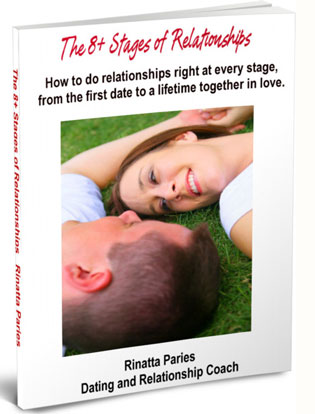 Anger is a normal part of every relationship, be it between partners, family, friendships, or work relationships.
Anger is a normal part of every relationship, be it between partners, family, friendships, or work relationships.
Yet, anger that is accumulated and unprocessed becomes resentment, something much more corrosive and dangerous to all relationship.
When resentment settles into a relationship, it’s as if the grave is being dug for the feelings of love and connection. A relationship may remain in spite of the resentment if permanency is built into it, such as a family relationship. But a romantic relationship, even marriage, marches towards a slow and painful death with enough accumulated and unprocessed resentment.
If you or your partner have feelings of resentment, these feelings lead to certain predictable actions. The person feeling resentful:
- Is less trusting of the other person
- Stops wanting to give as freely in the relationship
- Feels less love or desire for connection
- Does not want as much together time
As you might imagine, these actions do not lead to a happy, satisfying relationship. And yet, most people ignore this deterioration in their relationship, trying to continue to have the relationship on top of resentment.
I often wonder how people think that is possible. How can you be close to a person when you know they hold unresolved anger toward you? How can you trust a person who you know feels less compassion, generosity, and love for you?
You cannot. When the two of you are operating on top of resentment, both of you are more distant, less engaged, with less love flowing between you. You two may try to pretend that everything is ok while the resentment is eating into your relationship.
Resentment is made up of old feelings of anger and disappointment. To prevent it from eating your relationship from the inside out, you and your relationship partner need to do something let go of these old feelings.
Uncleared resentment is certain death to the good feelings between you, a certain path to more distance and more negative interaction. Clearing up resentments together, if done right, creates understanding, closeness, trust, and love.
Below is a step by step guide for how to clear out resentment between you and your partner.
Pre-resentment clearing steps:
Talk to your partner about the state of your relationship. Let him or her know that you notice less closeness, more frustration with each other, less connection. Tell him or her you suspect that perhaps both of you are carrying around some old frustration, anger and resentment at each other. Ask your partner if he or she is willing to work through these feelings with you in some honest, calm conversations about how each of you feels.
If you get a yes for an answer, congratulations, you picked a partner who’s going to work with you to make your relationship better!
If you get a no for an answer, try another time, with different words and see if you can get to a yes. Or, set up a Get Clarity telephone coaching session with me, so that I can help you find a way to reach your partner and get him or her into the conversation.
Preparing for resentment clearing:
Clearing resentment can take a while and depends on the length of your relationship and the amount of resentment each one of you is carrying towards the other. For some couples, this process could take months to complete.
The good news is, if you are doing the resentment clearing correctly, you will be growing closer to each other with each conversation. This means the time of clearing resentments is also a time of positive relationship building, and is a time well spent.
Resentment clearing steps:
1. Both of you make a list of your resentments towards each other. Make a detailed list first, then expand on each resentment individually, writing down in detail what specifically bothered you and is still bothering you.
During this list writing time be very careful with each other, as the feelings of anger and disappointment will be coming up as you write about them. Trust that you will be able to let them go in due time. Hold your feelings without dumping them on your partner.
2. By agreement, set aside two hours where you can be together in private, undisturbed by others. Turn off all distractions, such as TV, electronic devices, music, etc.
3. Pick who goes first. This person reads off one resentment and tells its story.
If you are the one telling the story of your resentment:
Tell the story in all its details, including how it impacted you and why it still bothers you. Leave out nothing important , while being aware that your partner is listening and that this story telling is not designed to punish him or her. When you feel done, ask your partner to tell you what he or she heard and understood.
If you are the listener:
No matter what your partner says, remember that you are ok. Do not speak until your partner is done. Do not defend yourself, even if the events in the retelling are wrong. Resist feeling unjustly accused or criticized. Be aware that there is no “truth’, but simply your version and his/her version of the story. You only have one job: understand your partner and his or her version.
When you are asked, feed back to your partner what your heard from the story that stood out to you as significant to your partner.
4. Work to let go of the resentment
Person who shared the resentment:
It is now time for you to get clear on what you need from your partner in order to let go of this resentment. You may know exactly what you need or you may need to think about it for a few moments. When ready, ask for what you need, specifically and clearly, like this “In order to let go of this resentment here’s what I need from you: ….”
The listener:
Hear the request and think about it. Can you do what is being asked of you? If so, say yes and then make sure that it is done, in a timely manner and as necessary, without further input from your partner. If not, say so and offer something else that you are willing to do instead.
Work together to negotiate and problem solve to come up with a workable, doable solution to this resentment for both of you.
5. Switch roles, with the story-teller becoming the listener and the listener becoming the story-teller and work through a resentment following the above process.
6. Work like this, together, until the two hours is up, or until one or both of you feel you need to stop. The stopping point may come after just one resentment go around or after many, Tolerance to this type of conversation will grow in both of you with time and practice.
7. When done, thank each other and if need be, get some space and time away from each other to regroup and feel ok again. Be careful bringing anything from this resentment conversation into your regular interaction, unless you both agree to do so.
8. Schedule another time to do the resentment work. Work through each and every resentment you and your partner have towards each other, in the above format, without shortcuts.
Doing this process is the most loving thing you can do for yourself, your partner and your relationship, even if it feels uncomfortable to both of you.
The willingness to open up to each other, hear each other and do repair in the relationship will bring the two of you closer together, while building trust and true intimacy.
[stextbox id=”red_box”]
Does your resentment feel sticky, in that you want to let it go but can’t?
Emotions like resentment can feel impossible to shift. I can help you in personal, one-on-one telephone coaching session to authentically let the resentment go, so the loving relationship that is available for you can emerge!
If you are ready to let go of your resentment and need more support than what is offered in this article, set up a Get Clarity Telephone Coaching Session with me to get started.
[/stextbox]
